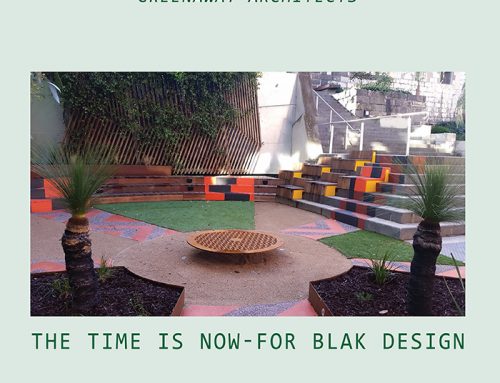China Scholarship Council funding is making it possible for overseas PhD architecture students to realise their dreams at Deakin.
From developing a new model for funding aged care facilities to researching the landscape architecture of ancient cities, PhD students from China are contributing to architectural research locally and internationally.
Ten Chinese academics and students have been sponsored by the China Scholarship Council (CSC) to study at Deakin University’s School of Architecture and Built Environment since 2015, as the School seeks to increase research collaboration between China and Australia.
The CSC is a non-profit organisation affiliated with the People’s Republic of China Ministry of Education and is responsible for the organisation, management and provision of financial resources for Chinese students studying overseas, and to international students studying in China.
Associate Professor Chunlu Liu, Associate Head of School (International), said the CSC funded PhD students to study for 36 to 48 months at “top level universities” around the world.
“These are very competitive scholarships and attract high quality research students to the School,” he said.
The School currently has two PhD students studying under CSC scholarships. Emma Liu, who received her scholarship in 2015, is supervised by Associate Professor Liu and is researching public-private partnership in the construction of aged care facilities.
Junli Chen, who received her scholarship last year, is undertaking a PhD in landscape architecture under the supervision of Deakin’s Professor David Jones, one of Australia’s leading experts in cultural heritage and landscape conservation.
Two other CSC scholarship students will commence their PhD research with the School of Architecture and Built Environment later this year.
Ms Jia Zhang plans a PhD in green building and Ms Lei Zhang will undertake research in construction productivity. Both will be supervised by Associate Professor Liu.
Associate Professor Liu, who is originally from China, studied and worked in Japan and the UK before coming to Deakin. He believes international collaboration is vital for producing quality research.
“The pooling of resources and support, sharing of ideas and different ways of doing things in different countries is so important. I think it gives researchers more energy for their work and creates a dynamic environment,” he said.
Emma Liu: Innovation in aged care facilities construction
After being introduced to Australia through her secondary school geography textbook, Emma Liu dreamed of one day living and studying here.
The dream became a reality as Ms Liu arrived at Deakin to begin her Masters in construction management in 2014. It continues as she pursues her PhD research into the innovative development of public-private partnership (PPP) in the construction of aged care facilities.
“There are many problems to be solved in the construction of aged care facilities, both in Australia and China. Whether it is in Australia or China, the ageing population is a serious issue and should attract the attention of the Government and economic entities.”
Ms Liu said her research includes risk identification and allocation of PPP retirement villages, determination and adjustment of concession periods, and optimisation of concession price.
She credits her supervisor Associate Professor Liu’s “rigorous and serious attitude towards academic research” as firming her resolve to continue her PhD studies at Deakin, and hopes to return to China to research and teach in her field after graduation.
Junli Chen: The heritage of landscape
Growing up in China’s fastest urbanising city of Chongqing, Junli Chen absorbed its unique geographic features and historic importance. As she witnessed the changes taking place in her childhood city and spoke to members of older generations about Chongqing’s past, her interest in heritage conservation as an aspect of landscape architecture was born.
As part of her PhD, Ms Chen is investigating the identification and conservation of “Cultural Trails” under the sub-category of Cultural Routes defined by the International Committee on Monuments and Sites (ICOMOS) using Chongqing’s mountain-city trail system as a case-study.
“Chongqing is a prominent city in China’s urbanisation policies. It hosts an old city that possesses a unique internal walking circulation trail system that has rarely been identified in Chinese and Western heritage appraisals of China’s cultural legacy.”
“This uniqueness demonstrates that old Chongqing possesses town planning theory and vernacular culture of national, if not international, heritage significance. My research poses the question of whether Chongqing can pioneer a new sub-type of ICOMOS’s Cultural Route definition that holistically embraces the old town structure as a complex historic urban landscape while accommodating the essence of ICOMOS’s and Chinese Cultural Route criteria.”
Ms Chen’s investigation involves reviewing how Cultural Routes, as a cultural heritage notion, originated and evolved in the international and Chinese heritage communities. She is also undertaking an international appraisal of cultural routes, their World Heritage standing, and how these heritage routes are identified and recognised as cultural routes under World and Chinese heritage regime criteria.
She said the opportunity to work with Professor Jones was a significant factor in choosing Deakin for her PhD.
“Professor Jones has worked for the Australia ICOMOS and ICOMOS International for many years. Also, he had supervised two Chinese students, including one CSC student, who had finished their PhDs in landscape architecture with an emphasis upon Chinese heritage conservation topics before,” she said.
Main photograph: Associate Professor Chunlu Liu, Associate Head of School (International) Architecture and Built Environment, Ms Junli Chen, Ms Emma Liu and Professor David Jones.







